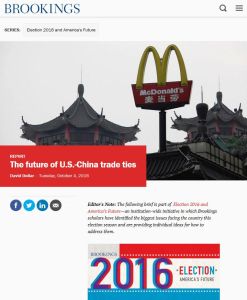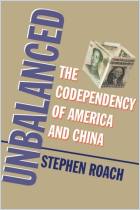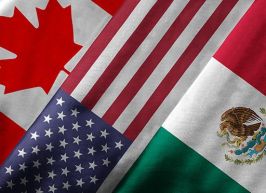Join getAbstract to access the summary!

Join getAbstract to access the summary!
David Dollar
The Future of U.S.-China Trade Ties
Brookings Institution, 2016
What's inside?
China is ground zero in the postelection US debate on protectionist trade policies.
Recommendation
Donald Trump has made stanching the flow of free trade a centerpiece of his plan to bring manufacturing jobs back to America. But how well would choking off trade with China, which ranks first in global exports, actually work? Senior Brookings fellow David Dollar explains in clear, concise language why protectionist trade policies would hurt the United States and how to use better strategies to reverse the loss of jobs and falling wages. getAbstract recommends this illuminating article to policy makers and anyone concerned about the future of global trade.
Summary
About the Author
David Dollar is a senior fellow at the Brookings Institution’s John L. Thornton China Center.






























Comment on this summary